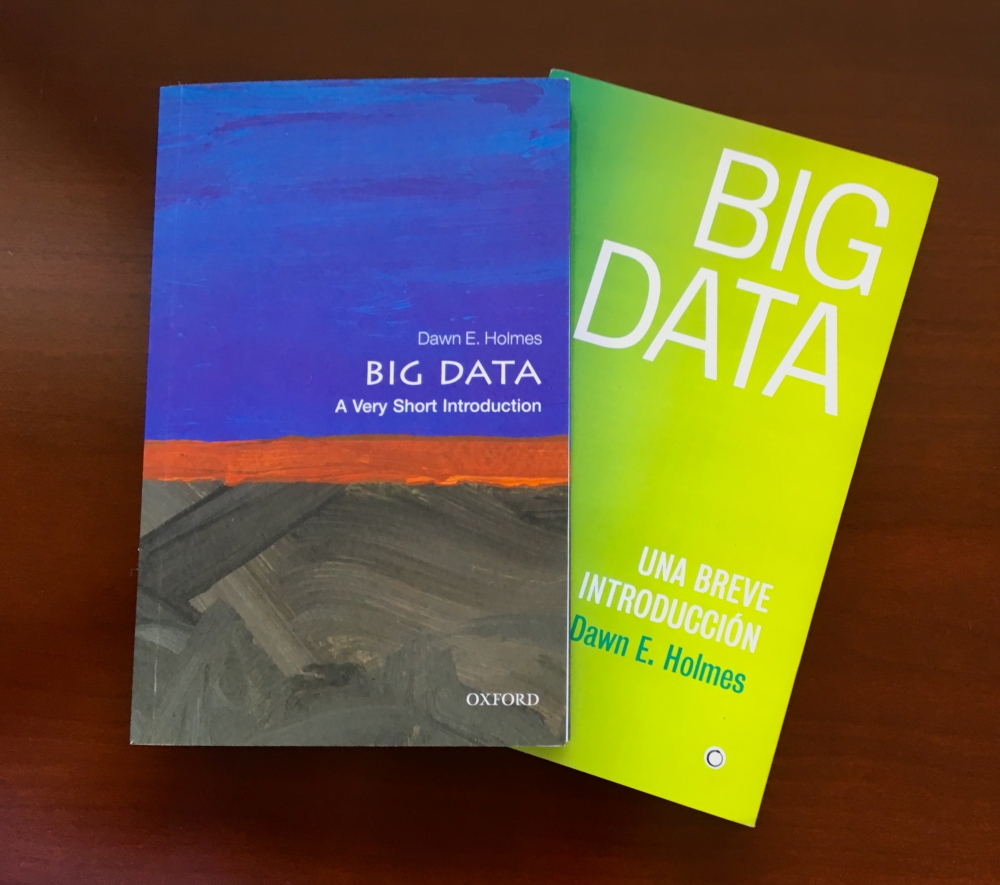
Little Book, Big Audience

Providing a concise introduction to a complex topic like big data is a tall order. But Dawn Holmes has managed it in less than 120 pages.
Her book, “Big Data: A Very Short Introduction,” helps those who are new to the field familiarize themselves with its core concepts. She seems to have struck a chord, as the book is already available in two languages — English and Spanish — with Chinese, Japanese and Slovenian translations soon to come.
“Books on big data tend to fall into one of two categories: either they offer no explanation as to how things actually work or they are highly mathematical textbooks suitable only for graduate students,” Holmes, vice chair of the Department of Statistics and Applied Probability, quips in the book’s preface.
Humans have recorded and used data for thousands of years, as Holmes points out with examples from Ancient Greece and the Incan Empire. However, we can now generate and analyze data on unprecedented scales. It was her reflections on this explosion of data production and availability that gave rise to the book.
“Our lives are affected by data on a daily basis,” said Holmes. Nearly all of us use computers, and the data we produce is collected, stored and analyzed by virtually every kind of organization, from grocery stores and healthcare organizations to banks and bookstores.
“The development of new techniques designed to extract useful information from all this data is at the forefront of data science research,” she said, “so a very short introduction to big data seemed a good idea.”
Holmes was aware of the Very Short Introduction series, and noticed a gap in their data science titles. So she contacted the editor at Oxford University Press, and they were receptive to her idea. Holmes had just spent five years as senior associate dean, so she saw the book as a great way to get back into the academic side of her work as she returned to research and teaching.
“I wanted to give an introduction to what was meant by the term ‘big data,’ which around the time this book came into existence was one of those buzz phrases that was going around in the business world,” Holmes explained.
She envisions the book attracting an educated reader, not necessarily an academic, but someone interested in modern affairs. For instance, the book could serve as the basis of a freshman seminar, she said — not a bad way for a non-specialized student to become familiar with the area. “Then, if they’re interested,” she added, “they can go on and pursue more technical details.”
“I’d like people who read the book to come out thinking that data is actually interesting, and that it’s important,” Holmes said. “It’s not just cold facts and figures. Data leads our daily lives now.”
More information about Holmes’s book is available at Oxford University Press.



